This pesticide poisons kids, but it's still sprayed on local orchards — including Christmas trees
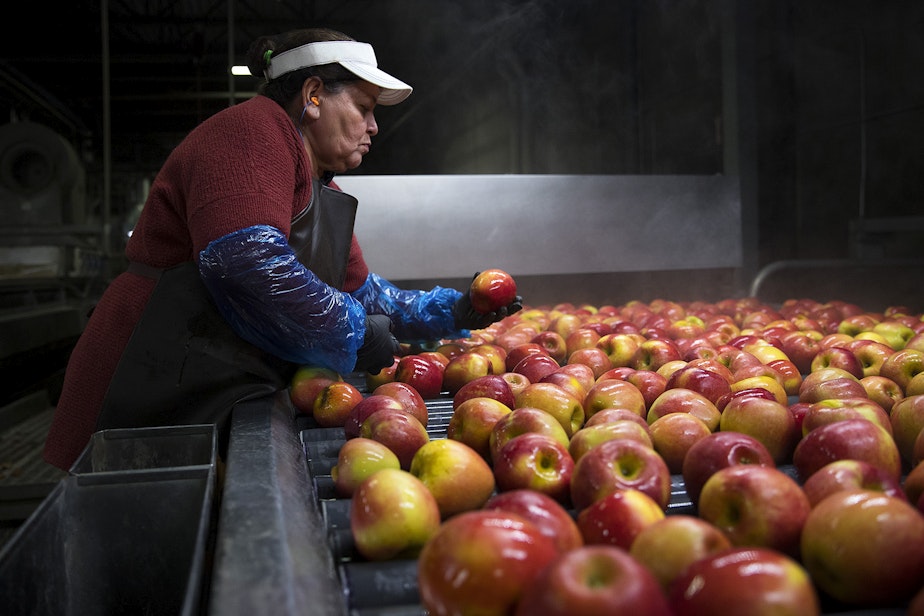
On Easter Sunday of 2017, the five Perez children were hunting for Easter eggs in their backyard when they smelled something unusual.
“Plasticky and rotten eggs,” their dad, Eric Perez, recalled.
The Perez family lives in Quincy, Washington—a town in the Wenatchee Valley where acres of apples surround almost every house. Eric Perez owns a trucking company that hauls agricultural products, and his wife Mari is a dance teacher. Their house is just feet from an apple orchard. Eric Perez says he immediately suspected that the orchard had been sprayed with a pesticide while the family was away from home.
Tony Schick of Oregon Public Broadcasting contributed to the reporting of this story. Read the second part here.
“Afterwards, we all started getting sick. I think we all went to the doctor,” Perez remembered. He said their symptoms included throwing up, diarrhea, scratchy throat, difficulty breathing and stomach aches.
Washington’s Department of Agriculture investigated and found that a pesticide called chlorpyrifos had drifted onto the Perez property from the neighboring orchard.
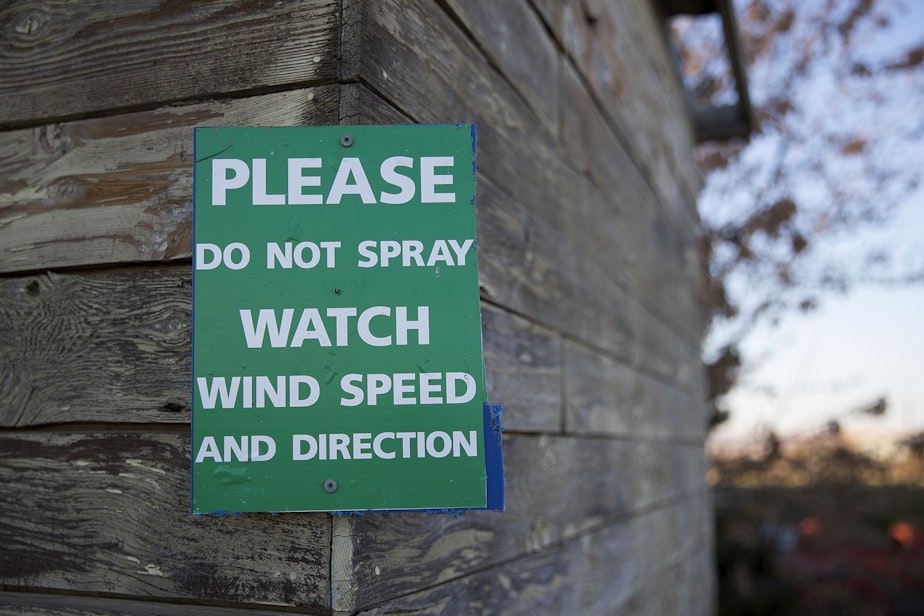
Sponsored
A court battle is currently raging over whether or not the EPA should ban chlorpyrifos nationwide.
In the meantime, Pacific Northwest farmers keep using it. In 2016, Washington farmers used more than 200,000 pounds of the chemical on orchards and vineyards, and the majority of Christmas tree farmers also rely on chlorpyrifos.
The reason chlorpyrifos is controversial is because of its health effects. When the pesticide drifts onto farm workers and farm neighbors, it can cause symptoms like the ones Perez described: nausea, abdominal cramps, vomiting, diarrhea, coughing, wheezing, and muscle weakness and twitching.
The chemical’s especially dangerous for babies and small children because it can have lasting neurological effects. Chlorpyrifos can blow from orchards into nearby houses; parents who work in orchards can transport the chemical home on their clothes and in their cars; and chlorpyrifos can make its way into developing fetuses through umbilical cord blood.
Sponsored
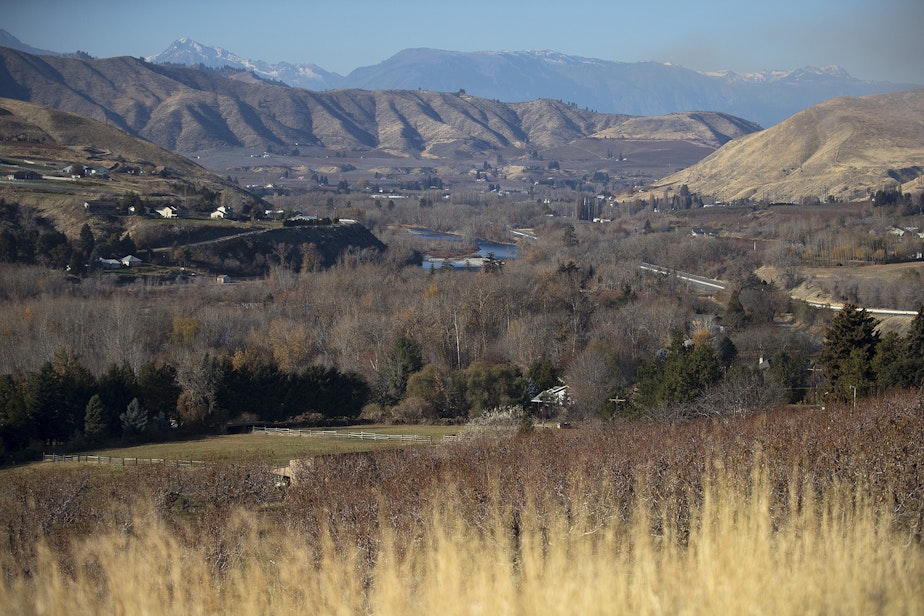
Children with more chlorpyrifos in their blood at birth and in early childhood scored lower on memory, verbal comprehension, and reasoning tests. They also had lower IQs and higher rates of ADHD and impulsive behavior than children exposed to less chlorpyrifos.
The neurological effects are slight enough they can only be shown statistically — not in any given child — so there’s no way of knowing whether or not the Perez children suffered neurological damage.
Because of chlorpyrifos’ health effects, the EPA decided to phase it out of household use in 2000 — but it’s still allowed in agriculture.
Sponsored
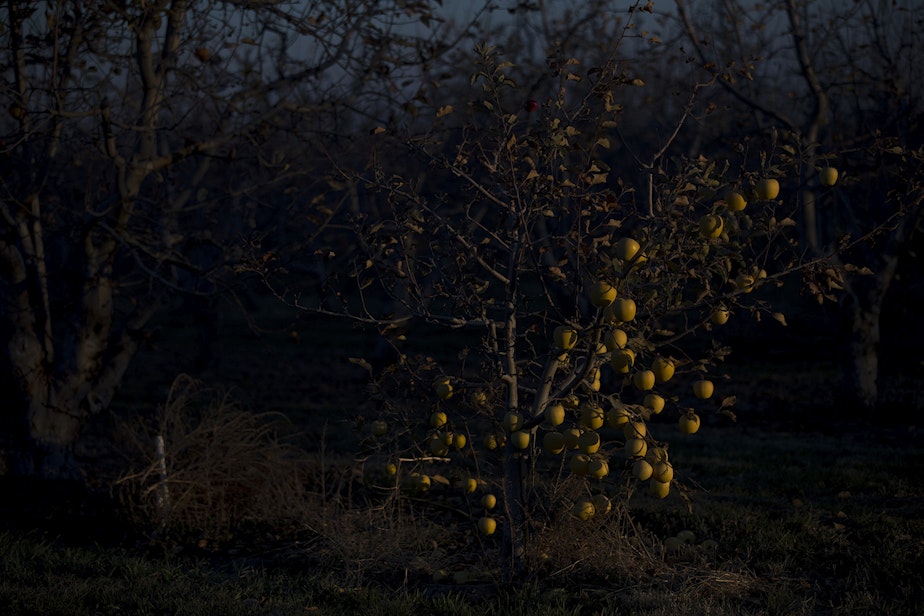
How much residue remains on products like apples, pears, and Christmas trees is unclear.
A study looking at kids from Mercer Island, Washington, and later repeated in Atlanta, found chlorpyrifos derivatives in the urine of kids who eat conventional produce. The derivatives disappeared after the children switched to an all-organic diet. It’s unknown if the levels of chlorpyrifos the researcher found in the children were harmful or not.
Because Christmas trees are most often sprayed in the spring, industry experts say the likelihood of exposure to any residue by the time it reaches a family’s living room is extremely low. Some growers do suspect purchased trees still contain pesticides, but published research on consumer exposure to Christmas tree pesticides is essentially nonexistent.
Sponsored

What is clear is the effect on farm workers and rural residents. Over the past five years, dozens of complaints have been lodged against growers in Washington and Oregon for chlorpyrifos use, and there have been several confirmed cases of chlorpyrifos drift.
Joanne Bonnar Prado, an epidemiologist with the Washington Department of Health, said many more cases likely go unreported because of language barriers and a lack of information about when and how to report pesticide drift.
Farmers say chlorpyrifos is a useful, inexpensive pesticide that fights devastating pests while keeping produce and Christmas trees affordable. They say the emphasis should be on safe use: minimizing pesticide drift instead of banning chlorpyrifos outright.
Sponsored
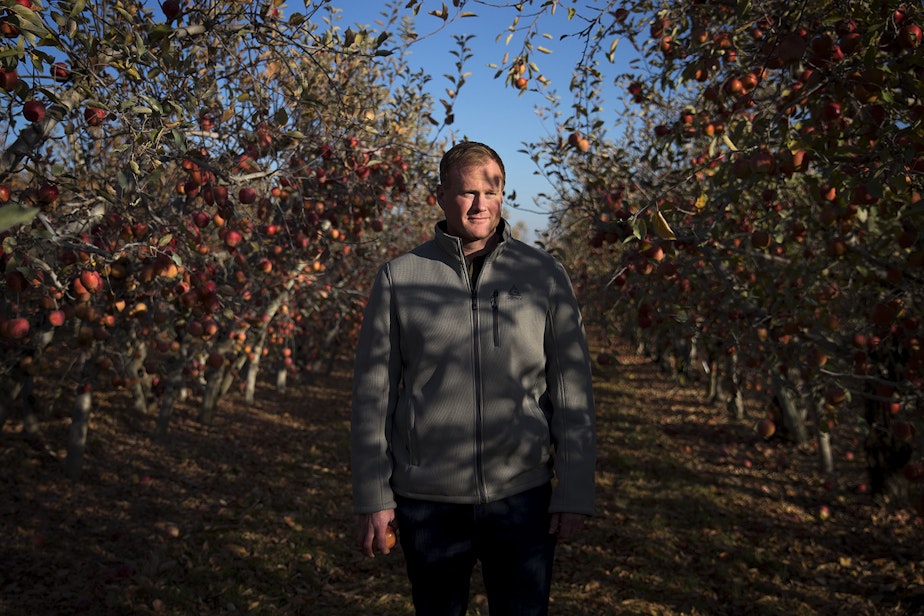
Sean Gilbert is a fifth-generation farmer in Yakima, Washington. He has a couple thousand acres of apples and also grows nectarines, apricots, cherries and pears.
He showed off his packing plant, where workers sort thousands of apples for sale west of the mountains.
About three-quarters of Gilbert’s apple acres are conventional — which means he sometimes uses chlorpyrifos.
“It will primarily go after a pest called scale,” he explained. “Scale irritates the skin of the apple and creates bright red spots on it. It would look like it had the measles.”
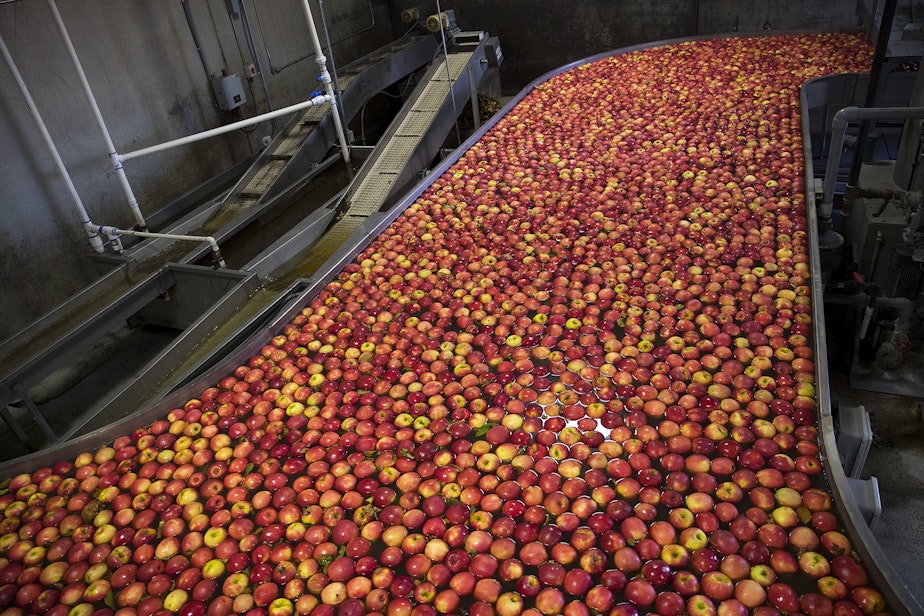
Betsy Beers, an entomologist at Washington State University who studies pest management, said there’s a reason growers have to take scale seriously.
“Scale, in particular, if left unchecked can kill your tree,” she explained.
Christmas tree growers use chlorpyrifos to kill aphids and other pests that can leave trees black, gnarled and unsellable.
Beers said there are alternatives to chlorpyrifos, but they’re more expensive. And, she added, regulatory requirements are such that new pesticides are entering the market very slowly.
“When I first started here many years ago, there were lots of new pesticides in the pipeline,” she remembered. “Today, that pipeline has really slowed to a trickle. We can’t count on there being an effective replacement coming anytime soon.”

In March 2017, then-EPA administrator Scott Pruitt rejected his own scientists’ advice and decided not to ban chlorpyrifos. Since then, the EPA and environmentalists have been fighting it out in the courts.
Prado, the Washington Department of Health epidemiologist, said, if it were up to her, chlorpyrifos would be taken off the shelf.
“If you have to choose one chemical — one single chemical that’s out there in use — chlorpyrifos would be the top of my list,” she said.
Richard Fenske, a University of Washington professor who has studied chlorpyrifos use, said it comes down to a question of who benefits from the chemical.
“It’s good for farmers, because it helps prevent pests and therefore they have a bigger crop and a better financial return,” he said. “It also may be good for consumers, because there are a greater abundance of high quality fruits and vegetables, and that may lower the price or at least make them available to us.”
“But,” he added, “the only people who are taking the risk are the people who are spraying it, the people who are working nearby who might get drifted on, and the people who live in those communities where there is a high use of these chemicals, and then the families of the workers.”
In the absence of a federal ban, two states, Hawaii and California-, took steps this year to limit or ban chlorpyrifos.
Washington Attorney General Bob Ferguson has joined other states in a lawsuit asking the EPA to ban chlorpyrifos — but no Washington legislator has introduced a bill that would institute a state-level ban.
A spokesperson for Jay Inslee said in an email that the governor is not considering a ban.
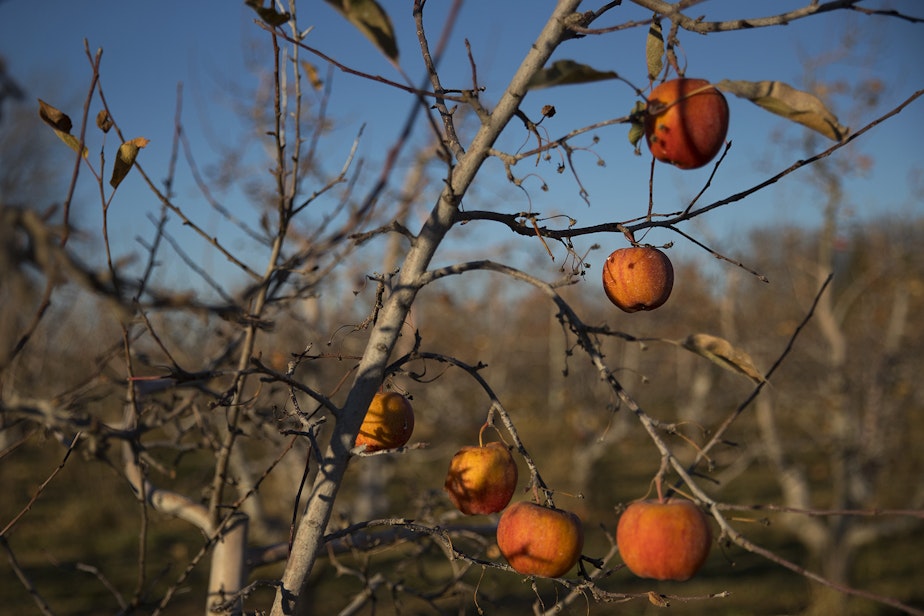
Back in Wenatchee, Eric Perez took matters into his own hands.
“That guy was spraying my house and my kids,” he said. “I saw my kids go to the doctor so many times. I failed them as a parent by not, you know, putting my foot down and going, ‘Dude, you need to stop.’”
So Perez bought the orchard next to his house.
Now, it’s farmed organically.




